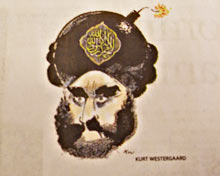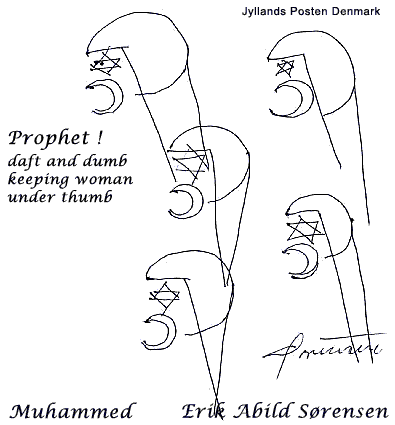I have many leatherbound books and my apartment smells of rich mahogany."
-- Ron Burgandy, Anchorman
Whenever I go to South Africa, I try to buy as many books as possible. There is a great deal of African writing, scholarly and otherwise, that either never gets to the United States, or that does arrive but is incredibly expensive (though books in South Africa tend to be pricey) or that simply do not come out in the United States until substantially later than here. And in any case, if you want to see where works on or from Africa rank in the book-buying hierarchy, go to your local book seller and check out the paucity of books they have on the subject. South Africa and the UK tend to be my most abundant opportunities to accumulate some of the best works on Africa, new or used. So here it is, "On the Bedside Table," African books edition.
(Note that I have not yet read all of these, so some of my comments will be based on what i know about the author, the significance of the book's publishing, the topic, and the like.)
Roger Southall and Henning Melber, Eds. Legacies of Power: Leadership Change and Former Presidents in African Politics Roger Southall is one of the most prominent, prolific and respected intellectuals in South Africa. He was in the politics department at Rhodes for several years, and now is a researcher for the Human Sciences Research Council. I know him somewhat, and was excited to see this book, as I have a long-term project on southern African democratization that I am embarking on in fits and starts amidst my other projects. The essays in this collection cover a wide geographic range, from Robert Mugabe to Julius Nyerere to Charles Taylor to Jerry Rawlings to Daniel arap Moi to Nelson Mandela, from Botswana to Zambia to Namibia to Malawi to Uganda to Nigeria. Legacies of Power is a vital contribution.
UNESCO International Scientific Committee for the Drafting of a General History of Africa, General History of Africa: Vol. IV Africa From the Twelfth to the Sixteenth Century I am slowly accumulating all of the volumes in this important project. My work does not extend anywhere near as far back as the 16th century (I am a modernist; I focus on a broad geographic swath, and very little happened before 1850 or so in my world; I am chronologically parochial and geographically cosmopolitan.) but obviously for a host of reasons, I need to be conversant with the general trends prior to where my work takes off. The books in the General History are not always the most riveting reads, but each chapter comes from one of the premier experts in the field, and this is as good a starting point as exists for the time period in question. I am now halfway to owning the entire series.
Zapiro, Bushwhacked: Cartoons from Sowetan, Mail & Guardian and Sunday Times Zapiro (Jonathan Shapiro) is hands down the finest political cartoonist in South Africa, and may be my favorite anywhere. Every time I go to South Africa I try to pick up one or two of his collections. I do not always agree with his views on foreign policy, especially when he discusses American policies that I am not certain he fully grasps, but what sort of person only reads and enjoys work that dovetails precisely with their own views? On the whole, Zapiro is brilliant, insightful and when necessary, scathing. There are few observers of the South African scene with comparable insight. Plus he brings the funny. (Zapiro’s daily strips and archives can be found here.)
Stephen Francis & Rico, Madam & Eve: Desperate Housemaids If Zapiro is my favorite political cartoonist, Madam & Eve star in my favorite daily strip, which follows the daily travails of a black maid and her white madam (and of course the gin & tonic besotted Mother Anderson, Madam’s mother). Brilliant stuff. (Although they have had some technical glitches of late, you can see what I mean by going to the Madam & Eve website.) When I buy my Zapiro I also pick up at least one Madam & Eve collection.
Harry Dugmore, Stephen Francis, & Rico, Eds. Nelson Mandela: A Life in Cartoons To finish off my animated troika, I also picked up this marvelous collection of cartoonists’ vies of Mandela. The history of post-1960 South Africa comes across pretty well in this lavishly presented collection. I cannot wait to get to the South Africa portion of my modern Africa course just to share some of these images with my students. I picked this up when I was in Johannesburg and read through it while eating dinner at one of Melville’s fashionable bistros. Some of the drawings are so compelling they evoked tears. Powerful, witty, incisive stuff.
Tom Eaton & Luke Alfred, Eds. Touchlines & Deadlines: A Compendium of South African Sports Writing It was sort of inevitable that at least one sports book would crop up here, wasn’t it? Eaton and Alfred pull together a pretty representative sample of South African writing about sports, Interestingly most of the writing comes from the period after 1980, for which they have a pretty reasonable explanation. (Most South African sports writing before that time sort of sucked is the gist of it.) I also thought that their shout out to American sports writing would be of some interest:
For fifty years the United States has been the driving force behind modern literature in English, whether poetry, fiction or nonfiction; its writers more than filling the slippers left vacant by Commonwealth authors when they shuffled off into university syllabi. And the sports writers have been in the vanguard of their advance. Neville Cardus and his fellow doyens have their place, but nobody writes sport like the Americans. We look westward for all our other influences: surely one more cultural loan – this time a few pointers on how to write sizzling, intelligent prose about a game – couldn’t hurt.
USA!USA!USA! This collection does show that slowly, South Africans are catching up.
Kader Asmal, David Chidester, and Cassius Lubisi, Legacy of Freedom: The ANC’s Human Rights Tradition This is effectively an essential collection of documents from the ANC’s anti-apartheid struggle with a little bit of assessment. Sure, there is a hint of ANC self-congratulations attendant in this project (all three are longstanding ANC stalwarts, with Asmal having by far the highest profile) but those congratulations by and large happen to be warranted. I purchased this in the Johannesburg airport on my way out of the country for just under R50 ($8, give or take). This is another one that will be great ion the classroom and will be a useful resource for my own work.
John Malathronas, Rainbow Diary: A Journey in the New South Africa I have, in the last few years, become a voracious reader of travel writing. I plan to do some travel writing of my own in the not-so-distant future. There may be no better way than to get to know a region or a place than through someone with wanderlust and an ability to convey a place’s uniqueness, idiosyncrasies and pleasures on the page. I have not yet absorbed this one, but I am looking forward to it, if only to compare notes.
Paul Maylam, The Cult of Rhodes: Remembering an Imperialist in Africa This is not a book for anyone from the Rhodes lineage. Maylam, my advisor when I was at Rhodes and now someone I’d like to think I can count as a friend and mentor, delivers a blistering indictment of Rhodes, his life, and his legacy. Here is the last paragraph-pus of Maylam’s well-crafted, brief (159 pages of text) evisceration of the mighty colossus:
I come back to John Flynt’s judgment that ‘fundamentally’ Rhodes was ‘a rather mediocre person’, an assessment that, in part, prompted this study: how is it that such a mediocre person could have generated so many biographies, so much historical and fictional literature, so many monuments and memorials, so much commemorative naming, so many anniversary celebrations? The answers are to be found partly in Rhodes’ money and his bequest, partly in his own obsessive desire for immortality, and partly in his ability to gather around him a coterie of admirers who would initiate and sustain a long hagiographic tradition after his death.
Rhodes desired, and purchased, his own immortality.
This is a book that should garner a fairly wide audience, but if you have grand images of Rhodes because of the scholarship and university that bear his name, prepare for some debunking.
Adam Hochschild, The Mirror at Midnight: A Journey to the Heart of South Africa Published in 1991, this travelogue-cum-reportage captures South Africa when it was at a tipping point between civil war and peace. Hochschild is most famous for King Leopold’s Ghost, his best selling, highly regarded account of King Leopold II’s Congo (which my Modern Africa class is reading now). I have not read this yet either, but am looking forward to seeing how his assessments stand up.
Dan Jacobson, The Electronic Elephant: A Southern African Journey Another as yet unread travel book. Kimberley native Jacobson is supposed to weave journalism, history and travelogue into his recounting of a trek northward from South Africa. Hopefully these travel books will spur my next trip to South Africa, which may well come this summer.
Happy reading!





